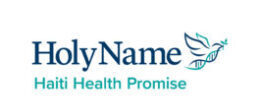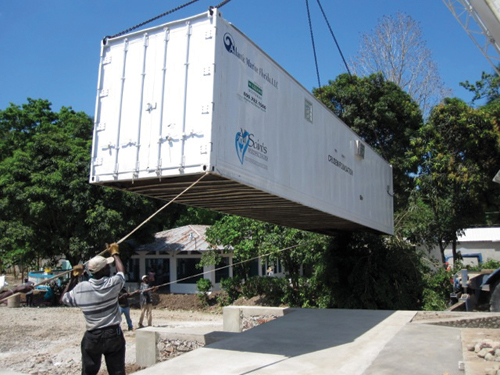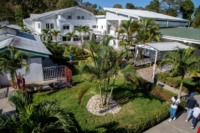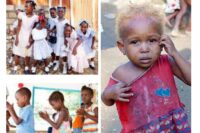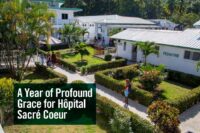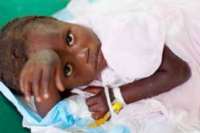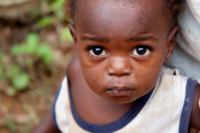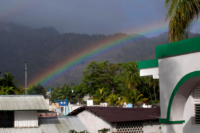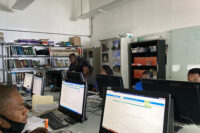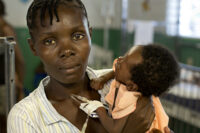Haiti continues to be a challenge, with hurricanes, mudslides and cholera. But due to all of your support, the prosthetic lab remains a shining star in a dark sky.
Most of you helped in the creation and construction of the lab from an old shipping container that was converted into an office and then transformed into a state of the art prosthetic shop.
Without the support of the community it would not have been created. Our special thanks goes to Atlantic Marine, Suddath Van Lines, Exact Corporation, Jack Becker Distributors, Lambs Yacht Center, All Saints Episcopal Church, the Meninak Club, Advanced Prosthetics and many others.
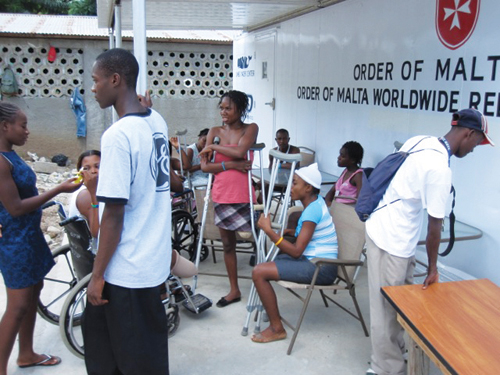 Once the lab hit the ground in Haiti, it was put to work. There were so many amputees from the earthquake and, as we later realized, over 1,500 untreated amputees in northern Haiti. With a population of more than a million, there were no certified prosthetists to treat them. Without the support of the community it would not have been created.
Once the lab hit the ground in Haiti, it was put to work. There were so many amputees from the earthquake and, as we later realized, over 1,500 untreated amputees in northern Haiti. With a population of more than a million, there were no certified prosthetists to treat them. Without the support of the community it would not have been created.
As you may or may not be aware, it is not just a matter of making a one-time prosthesis because each one needs to be serviced and replaced every year or two.
We started out with visiting CPOs from the US and were able to meet the immediate need following the earthquake. However, to make the lab sustainable we needed to train Haitians to become certified prosthetists.
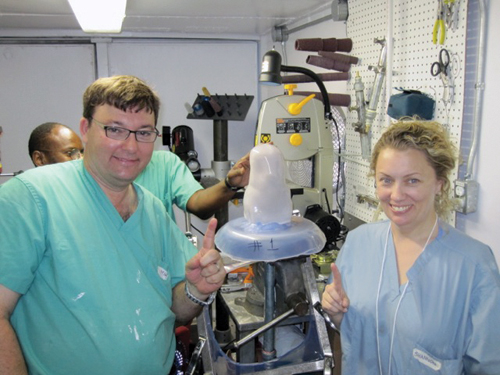 This required enrolling them in a university, and the University of Don Bosco in El Salvador had such a program designed for Central America and the Caribbean. We initially hired a student to go on line to follow the curriculum and be proctored by visiting prosthetists. This model did not succeed so we searched for another way. I believe there definitely were angels in Milot looking after us. We found Oscar Bermudéz, a certified prosthetist from El Salvador, who had trained at the UDB, worked in Haiti after the earthquake, and was willing to come and work and teach students. In a very professional way, he developed a screening process and exam for potential students. The response to the announcement, that CRUDEM/HSC was looking for students to train, was overwhelming, but Oscar narrowed it down to two students.
This required enrolling them in a university, and the University of Don Bosco in El Salvador had such a program designed for Central America and the Caribbean. We initially hired a student to go on line to follow the curriculum and be proctored by visiting prosthetists. This model did not succeed so we searched for another way. I believe there definitely were angels in Milot looking after us. We found Oscar Bermudéz, a certified prosthetist from El Salvador, who had trained at the UDB, worked in Haiti after the earthquake, and was willing to come and work and teach students. In a very professional way, he developed a screening process and exam for potential students. The response to the announcement, that CRUDEM/HSC was looking for students to train, was overwhelming, but Oscar narrowed it down to two students.
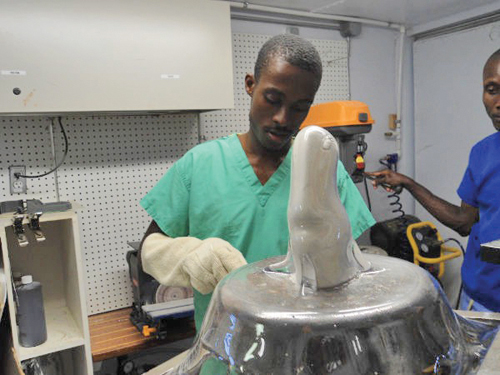 Dantus Gilles and Daniel Etienne have proved themselves by passing the first of six sections to become certified with the highest marks. This is a real tribute to Oscar’s tutelage and involvement in their education.
Dantus Gilles and Daniel Etienne have proved themselves by passing the first of six sections to become certified with the highest marks. This is a real tribute to Oscar’s tutelage and involvement in their education.
The first year is near completion and Oscar has agreed to stay on for another year. The program takes three years and has six modules the students have to pass. So far we have been able to support the project with donations to CRUDEM designated for the Prosthetic Lab.
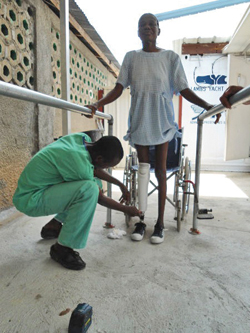 It is expensive, about $26,000 for the educational component, $22,000 for operational expenses and $31,000 for the prosthetic components annually (we do not charge the patients any thing). When you consider what it costs in the US for prostheses, tens of thousands of dollars per patient, we are providing a service at a phenomenal price.
It is expensive, about $26,000 for the educational component, $22,000 for operational expenses and $31,000 for the prosthetic components annually (we do not charge the patients any thing). When you consider what it costs in the US for prostheses, tens of thousands of dollars per patient, we are providing a service at a phenomenal price.
So far this year, the lab has produced 42 artificial limbs, 15 orthosis (braces), 20 repairs or replacements of existing prostheses and has a waiting list of 10 patients who need prosthetics.
So I want to thank you again for your support on behalf of Oscar and the students. Oh, and by the way, the students agreed to stay on for three years, after getting their degrees, to teach three more students. With continued support, hopefully it will be an ongoing project.
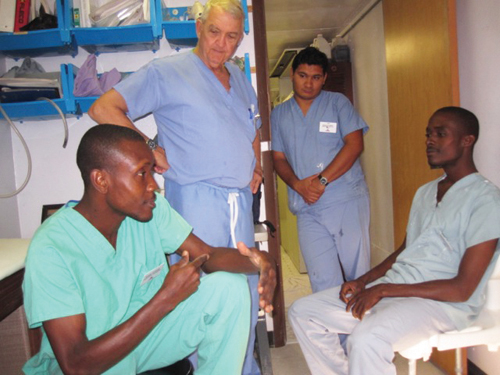 Any financial support you would like to give to the prosthetic lab would be a blessing.
Any financial support you would like to give to the prosthetic lab would be a blessing.
Your support is allowing the lab to make lives whole again. God Bless.
